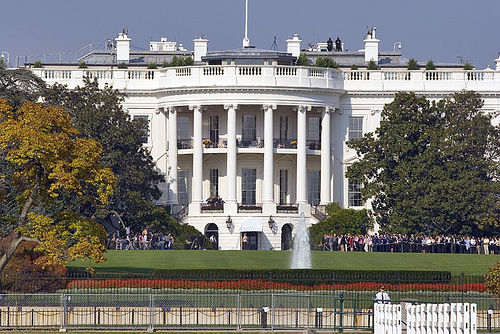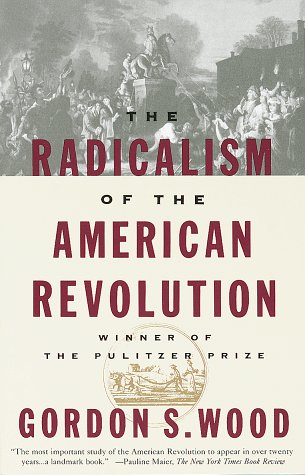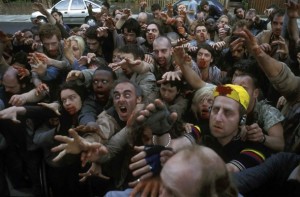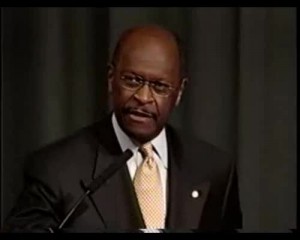So what was so radical about the American Revolution? Well, Gordon Wood, professor of history emeritus at Brown University, proposes that the radicalism that sustained and bred society as we know it wasn’t quite that radical. In fact, most of us today would probably scoff at how un-radical the ideas and policies of the American Revolution were because of their simplicity. But as Google, minimalism, and many other modern-day companies have proven, sometimes less is more. The radicalism that we, not only as Americans but a society at large, appreciate and abhor at the same time of the American Revolution was, quite simply, the middle class.
I know, right. The middle class? The same culture that gave us suburbia, homogeneity, nine-to-five, and an overall sense of banality. How could this sort of culture produce one of the key social paradigm shifts necessary to transition into the world we live in today? That’s more of an ideological-sort of question, one in which Wood addresses in his book, The Radicalism of the American Revolution. The middle class, to be quite frank, allowed for society to become an equal, multilateral organism that no longer depended on a hierarchy, more specifically an aristocracy. The death of the aristocracy is possibly one of the most important transitions that we as a society could have made, because not only did it bring about social movement, but it allowed for people to better themselves and their station in life; to have the from-rags-to-riches kind of story. Of course equality and social mobility didn’t come all at once, as history has shown, but it was because of what the Founding Fathers laid out for us that we were eventually able to reach the levels of freedom that we have today.
Wood, nor I, asserts that hierarchy, at its most basic level, does not exist in today’s society. No, rather the system of hierarchy is significantly blunted by the existence of a middle class. And granted, while perhaps a disproportionate population of the wealthy own a majority of the wealth in the world, it still stands to reason that more people are like you and me, semi-well off, with a relatively good education, and a stable upbringing. But as the wealthy, as this is what Wood warns us about, get even wealthier, the middle class begins to shrink, joining, effectively, the low-income class, the poorer class. With a stagnant job production, increase in population, and depletion of resources, that binary polarization between rich and poor will continue to spread further and further, weakening the strength of the middle class—the class necessary to stave off an ostentatious and egregious hierarchy that we experienced previously in monarchial and tyrannical forms of government.
 And most people are then now responding with this disparity between classes by quoting our Founding Father’s outstanding opposition to large governments, as if it was the government entirely that got us into the mess that we’re experiencing. I’m sorry, but that just doesn’t make any sense. The economy is run by corporations. Corporations have become America’s religion. It is the private sector within society that has effectively created and exacerbated this polarization between classes, going against everything that the Founding Fathers stood for. For, while many of our Founders did stand for limited government, they did so with the thought that people would not act purely based on private interest, that people would be legitimately concerned with their community around them and at times, when necessary (and this is a time of necessity), sacrifice some—not all—of their interests for the greater good. Our country was not founded on economic principles that tarnished a community’s and the individual’s sense of responsibility and ethical decisions. We were not founded on a purely unchecked free-market economy where the bottom line was and always will be money. That’s just plain ignorant of the majority of Libertarians, Tea Partiers, Democrats, Republicans, and any other politicians right now.
And most people are then now responding with this disparity between classes by quoting our Founding Father’s outstanding opposition to large governments, as if it was the government entirely that got us into the mess that we’re experiencing. I’m sorry, but that just doesn’t make any sense. The economy is run by corporations. Corporations have become America’s religion. It is the private sector within society that has effectively created and exacerbated this polarization between classes, going against everything that the Founding Fathers stood for. For, while many of our Founders did stand for limited government, they did so with the thought that people would not act purely based on private interest, that people would be legitimately concerned with their community around them and at times, when necessary (and this is a time of necessity), sacrifice some—not all—of their interests for the greater good. Our country was not founded on economic principles that tarnished a community’s and the individual’s sense of responsibility and ethical decisions. We were not founded on a purely unchecked free-market economy where the bottom line was and always will be money. That’s just plain ignorant of the majority of Libertarians, Tea Partiers, Democrats, Republicans, and any other politicians right now.
We, as Wood states in his book, were founded upon revolution, change, and ethical consciousness in response to tyrannical, monolithic institutions whose goal it was to limit the freedom of the population. A hierarchy, in simple terms. And a hierarchy can take the form of many different institutions, not just government. Sometimes, and this is the case right now, the economy can enslave society. As consumers, we’re free. But a consumer isn’t necessarily free. A consumer, rather, is a slave to corporations. A consumer is a form of capitulation to a new form of hierarchy that, by the end of this century, if the state of America does not change, will wipe out the middle class and create an ultra polarization of rich and poor. And that, essentially, is the bottom line.
The Radicalism of the American Revolution by Gordon S. Wood,





Smike
30 May 2011Fascinating.
This book is next on my reading list. The only thing that would have made this review better is a link to Amazon. I’ve always maintained that the difference between Right and Left was how it approached hierarchy and power. In this way, the founding fathers were radical Leftists.